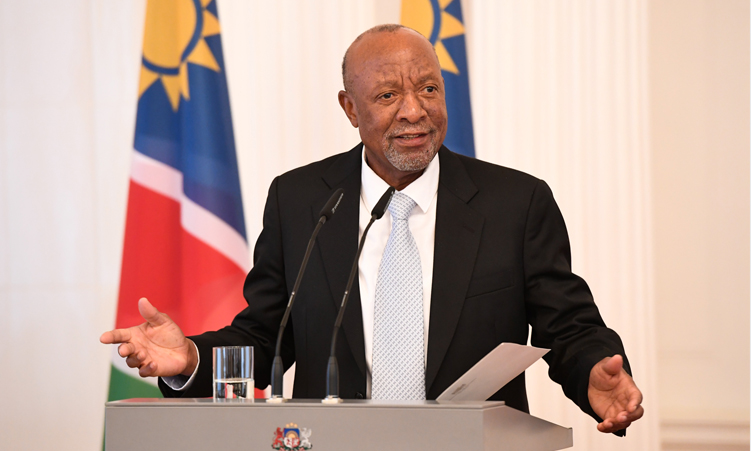President Nangolo Mbumba says labour rights are fundamental to Namibia’s democracy and social justice.
He addressed national challenges such as unemployment and economic disparities in a statement released yesterday.
Mbumba acknowledged the strides Namibia has made, while highlighting ongoing issues facing the labour sector.
“These include unemployment disproportionately affecting the youth, inflation affecting workers’ livelihoods, informal employment, and job insecurity,” he said.
The president highlighted Namibia’s commitment to robust labour rights.
“Namibia’s commitment to upholding labour rights is a cornerstone of its democratic principles and social justice. Recognising the inherent dignity and value of all workers, Namibia has enshrined labour rights protections within its Constitution,” Mbumba stated.
CELEBRATING UNIONS
He celebrated the vital role of trade unions in shaping the country’s labour landscape and their ongoing advocacy for fair wages and working conditions.
“Trade unions emerged as key players in the struggle, rallying workers and advocating improved working conditions, fair wages, and the right to organise. In the face of adversity, trade unions became the voice of the marginalised,” he noted.
Reflecting on this year’s theme, ‘Social Justice and Decent Work for All’, Mbumba described it as a clarion call to action.
“This reminds us of the importance of creating a fair, inclusive and equitable society where every individual has access to dignified work and a decent standard of living,” he said.
He called on all stakeholders to intensify their efforts towards the realisation of labour rights.
“Let us envision a society where every worker’s rights are protected, where labour is valued and rewarded fairly, and where prosperity is shared by all. Together, let us build a brighter, more inclusive future for generations to come,” he said.
‘PLAGUED BY EXPLOITATION’
Labour expert Herbert Jauch has a mixed perspective on the actual conditions of labour rights enforcement and employment challenges in Namibia.
“While some companies in Namibia take workers’ rights seriously and adhere to the Labour Act and collective bargaining agreements, many sectors are plagued with exploitative labour relations,” he says.
Jauch emphasises the vulnerability of less skilled workers, who often suffer severe violations of their labour rights, including intimidation and unjust dismissals.
Jauch acknowledges the strides Namibia has made with regards to labour rights, but says “the reality is that labour is often undervalued, as evidenced by the shockingly low wages many Namibian workers earn”.
He says the country remains one of the most unequal globally.
“We need to know how these issues of wealth inequality and inadequate wages are being addressed. It’s not enough to envision a fair society. We need concrete strategies to make it a reality,” he says.
The Ministry of Labour, Industrial Relations and Employment Creation released its fourth-quarter report for the 2023/24 financial year on Tuesday, outlining key developments and persistent challenges in labour management.
Executive director of labour, industrial relations and employment creation Lydia Indombo says 1 713 labour cases have been addressed since January, with over half successfully resolved.
She touched on the role of the Employment Equity Commission and its work on affirmative action, including the development of a national strategy on mainstreaming disability in employment.
NAITONAL MINIMUM WAGE
In his address at a Workers’ Day celebration at Rundu yesterday, labour minister Utoni Nujoma reiterated the government’s effort to fostering productive dialogues, ensuring fair labour practices, and championing the rights of workers across the nation.
He said the proposed and much-anticipated national minimum wage would be submitted to the Cabinet next week, and the government intends that it comes into effect later this year.
In addition, the minister promised that other labour and employment bills would be finalised.
“As social partners, we must continue to prioritise issues such as fair wages, the correct number of working hours, proper working conditions and access to training and education,” he said.
The minister urged trade unions to reaffirm their commitment to upholding the fundamental rights of workers.
Stay informed with The Namibian – your source for credible journalism. Get in-depth reporting and opinions for
only N$85 a month. Invest in journalism, invest in democracy –
Subscribe Now!







